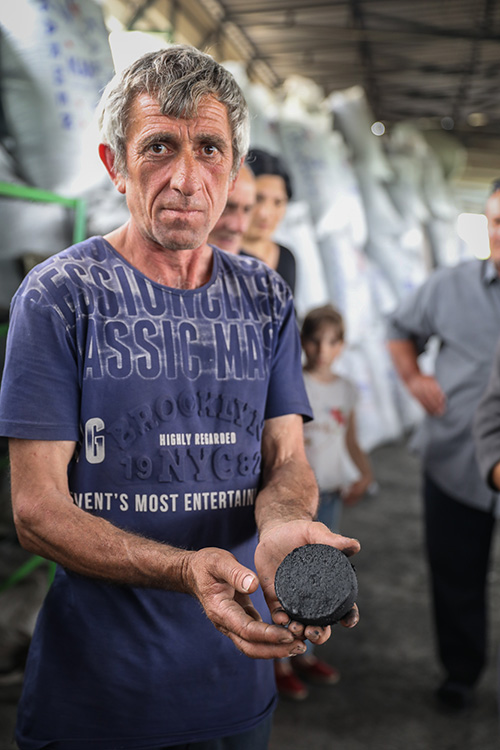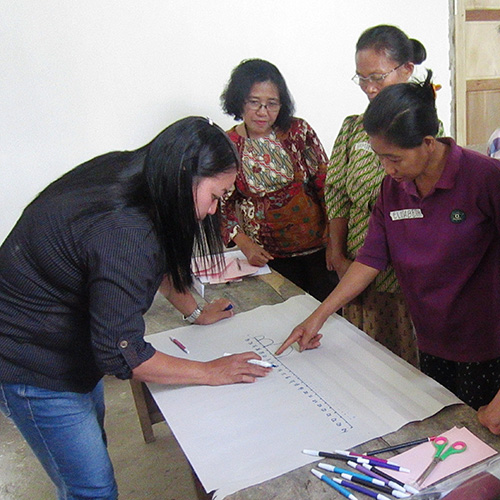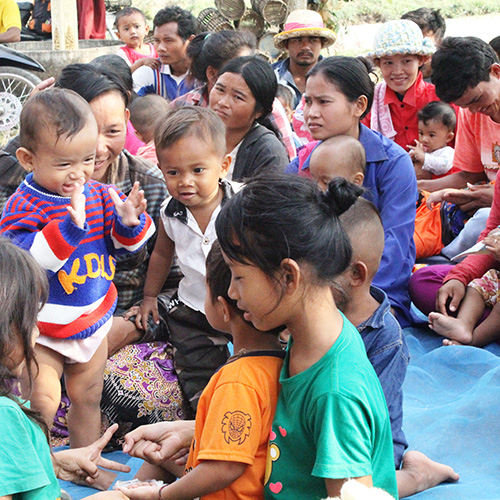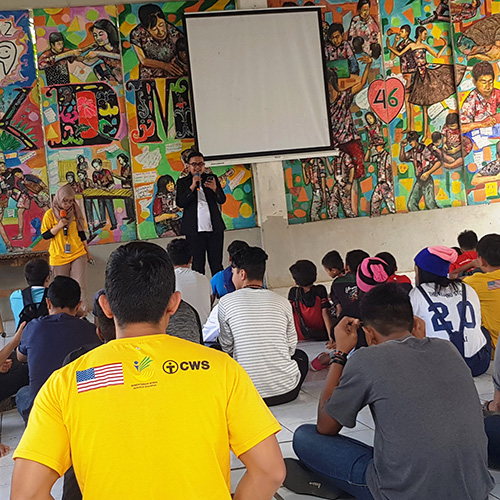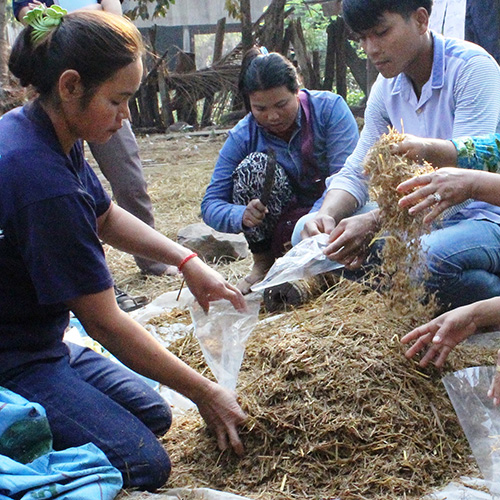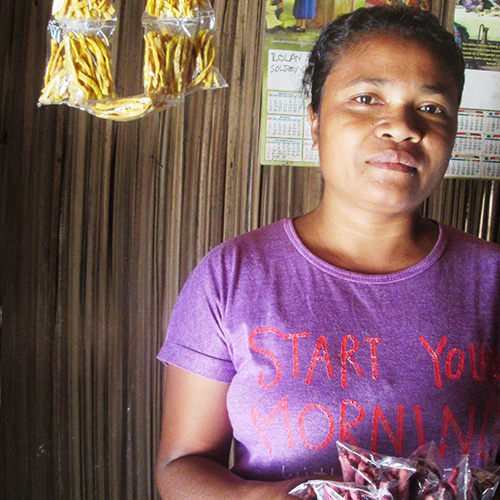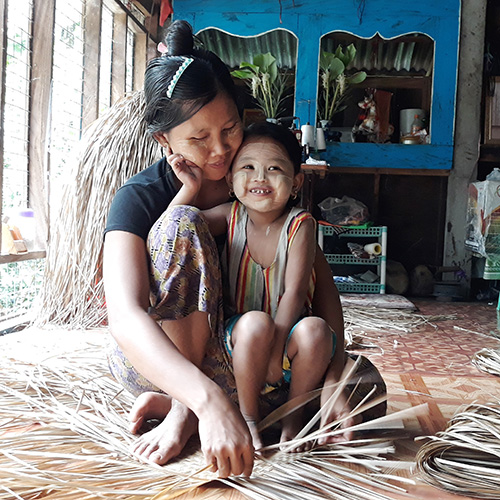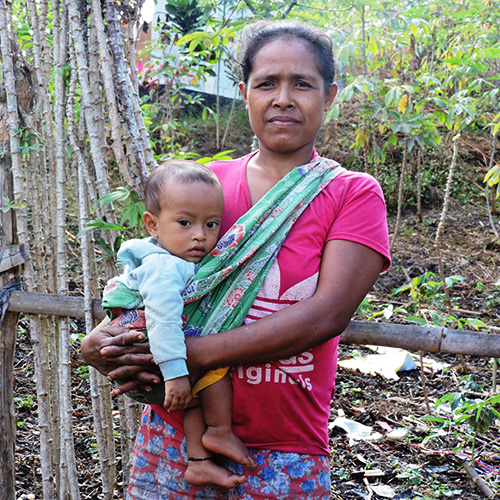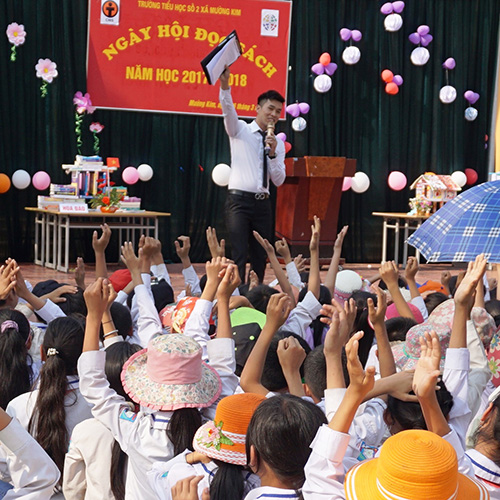Stories of Change
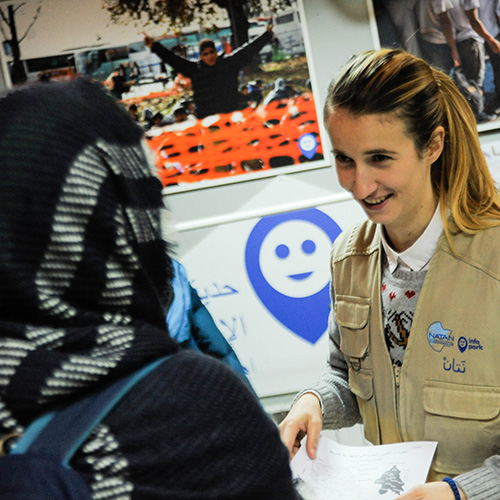
A female staff member and client at Info Park. Photo: courtesy Info Park
104 women and girls have participated in Girls Day activities at Info Park in the last five months.
A ray of sunshine for refugee women in Serbia
Imagine an ordinary day in the life of a bright and determined 17-year-old girl. What do you think of? Is she doing her homework and working on college applications? Playing sports on her high school team? Spending time with her friends, or looking for internships?
You probably didn’t think of a refugee camp, miles from home and everything familiar to her. Sadly, that’s Fatima’s* reality. She is a bright and determined 17-year-old, but she lives with just one of her elderly parents in a refugee camp in Belgrade, Serbia. She felt like her life was frozen, in limbo at the moment that a future filled with possibilities should be unfolding in front of her.
Fatima’s story, unfortunately, is also the story of many other girls and women who have arrived in Serbia as migrants and refugees since the so-called Balkan route to Europe was activated in the summer of 2015. The number of migrants and refugees in Serbia is no longer at the peak levels it was after the route began, but their needs continue to be complex and the risks they face continue to be high. This is especially true for women and girls.
Everyone in this vulnerable population struggles to meet basic needs. The support system of family and neighbors that they once had at home is gone. They have often been preyed on by smugglers who take their life savings and don’t follow through on promises. As men feel helpless and frustrated, rates of intimate partner violence against women rise.
With all of this in mind, CWS partner Info Park began hosting Girls Days to help women and girls gain the information, skills and confidence they need to make their own decisions, advocate for themselves and build a social network of trust and support within the refugee community. On Girls Day, women and girls attend workshops on various topics like gender, human rights, health, assertive communication, gender-based violence and intimate partner violence; participate in creative workshops like jewelry making or henna; take German or English classes; and do yoga together.
Girls Day programs are offered in three locations in Serbia. In the first five months of the program, more than 100 women and girls from Afghanistan, Iraq, Iran and Somalia participated. Child care is also provided during the activities; more than 30 children accompanied their moms or sisters to Girls Day activities. Info Park has also arranged for Dignity Kits and supermarket vouchers for these women to ensure that they can control resources to meet their basic needs, which they often have to depend on male community members for. Counseling, action plans and referrals to other services are provided for survivors of gender-based violence, whether ongoing or in the past. The team has assisted survivors of early forced marriage, intimate partner violence and physical, sexual or emotional abuse.
Back to Fatima on this summer day in July. She has been attending German classes at InfoPark for a while, and she is now confidently fluent in the language. She is one of the most regular participants of Girls Day each week and is currently leading the group that helps other women organize and speak up about their current needs. She has made a plan for her future – she wants to work as a physician one day. Until that day comes, she is putting all her efforts and time in building her assets step by step to this goal.
When it comes to this not-so-ordinary 17-year-old, we’re there to give her the space and access she needs to accomplish all that she has set her mind to. As she puts it, “It feels cloudy almost every day. But when I join my friends at the workshop, it feels like here, in our small circle, sun is shining again.“
*Name changed to protect her identity.

